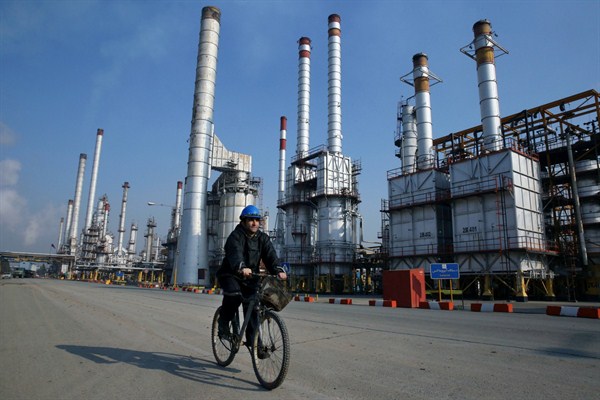When Iran signed the international agreement in 2015 to curb its nuclear program in exchange for the lifting of sanctions, President Hassan Rouhani’s administration believed the deal would usher in badly needed foreign direct investment to relieve Iran’s economic woes. Two years on, the promise of an economic renaissance has not fully panned out. In an email interview, Sanam Vakil, professorial lecturer at the Johns Hopkins University SAIS Europe in Bologna and associate fellow at Chatham House in London, discusses what Iran has achieved since the sanctions were lifted, the ongoing political wrangling between reformers and hard-liners, and whether or not the nuclear agreement will ultimately result in a softening of Iran’s foreign policy.
WPR: How much foreign investment has there been in Iran since the end of sanctions, and how does it compare to expectations? What are the opportunities and obstacles going forward?
Sanam Vakil: There has definitely been a large gap between expectation and reality regarding the level of foreign investment in Iran after the nuclear agreement, known as the Joint Comprehensive Plan of Action, was signed in July 2015. In order to increase internal support for the deal among Iran’s contentious factional groups, Rouhani’s administration oversold the prospects and opportunities for investment in Iran without addressing the limitations and challenges. Rouhani called for over $150 billion in foreign investment in diverse domestic industries, believing that investment would not only revive the Iranian economy, but also protect the Islamic Republic by creating a diversified economy that provides greater employment opportunities for its citizens. The obstacles, however, have far outweighed investment prospects and include continuing U.S. sanctions on Iran, which prevent American citizens and companies from engaging in any business in the country.

